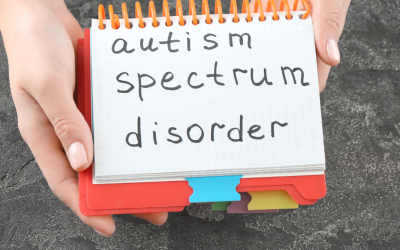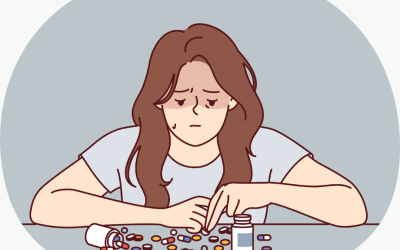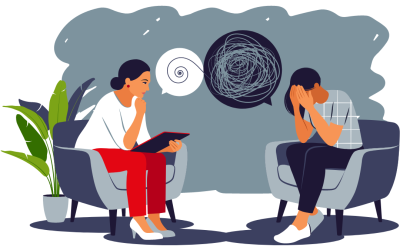Breaking the Stigma: Why It’s Important to Talk About Mental Health
Mental health is just as important as physical health, yet it is often neglected, misunderstood, and stigmatized. Mental health conditions can affect anyone regardless of their age, gender, ethnicity, or social status. Unfortunately, the negative attitudes towards mental health can prevent individuals from seeking the help they need, which can lead to devastating consequences. In this blog, we will discuss the importance of breaking the stigma surrounding mental health and why it is crucial to talk about it openly and honestly.
The Stigma Surrounding Mental Health
Mental health stigma refers to the negative beliefs, attitudes, and behaviors towards individuals with mental health conditions. Stigma can be fueled by a lack of understanding and misinformation, leading to discrimination and social exclusion. People with mental health conditions may be viewed as weak, dangerous, or unpredictable, which can result in job loss, social isolation, and limited access to mental health facilities.
The Consequences of Stigma
Stigma can have a profound impact on individuals with mental health conditions. They may feel ashamed, guilty, or embarrassed about their mental health diagnosis and may avoid seeking treatment. This can lead to a worsening of their symptoms, a decline in their quality of life, and an increased risk of suicide. According to the World Health Organization (WHO), over 800,000 people die by suicide each year, with mental health conditions being a significant risk factor. Furthermore, stigma can prevent individuals from accessing mental health treatment centers, which can worsen their mental health outcomes.
Breaking the Stigma
Breaking the stigma surrounding mental health requires a concerted effort from mental health professionals, mental health organizations, policymakers, and the wider community. It is essential to increase awareness and understanding of mental health conditions, including the signs and symptoms and the available treatment options. This can be achieved through education and public campaigns that promote good mental health and encourage people to seek help when needed.
Mental Health Professionals
Mental health professionals, including clinical mental health counseling, have a crucial role to play in breaking the stigma surrounding mental health. They can provide accurate information and dispel myths about mental health conditions, create safe and non-judgmental spaces for individuals to discuss their mental health concerns, and provide effective mental health treatment. Mental health professionals can also work with mental health organizations and policymakers to advocate for policies and practices that support good mental health and reduce the impact of stigma.
Mental Health Organizations
Mental health organizations can also play a vital role in breaking the stigma surrounding mental health. They can provide resources and support for individuals with mental health conditions and their families, raise awareness and understanding of mental health issues, and advocate for policies that support good mental health. Mental health organizations can also work with mental health professionals to develop evidence-based treatment protocols that are effective in treating mental health conditions.
Policymakers
Policymakers have a crucial role to play in breaking the stigma surrounding mental health. They can support mental health organizations and mental health professionals by providing funding for mental health facilities and treatment centers, promoting policies that support good mental health, and creating laws that protect the rights of individuals with mental health conditions. Policymakers can also work to reduce the stigma surrounding mental health by promoting public education campaigns that promote good mental health and encourage people to seek help when needed.
The Wider Community
The wider community can also play a crucial role in breaking the stigma surrounding mental health. They can educate themselves about mental health conditions, including the signs and symptoms and the available treatment options. They can also create safe and supportive environments for individuals with mental health conditions, promote good mental health, and speak out against stigma and discrimination. By breaking the stigma surrounding mental health, the wider community can help to reduce the impact of mental health conditions and promote good mental health for all individuals.
The Importance of Talking About Mental Health
One of the most powerful ways to break the stigma surrounding mental health is through open and honest conversations. Talking about mental health can help to normalize it and reduce the fear and shame associated with it. Here are some reasons why it’s crucial to talk about mental health:
Promotes Awareness and Understanding: Talking about mental health can increase awareness and understanding of mental health conditions. It helps to dispel myths and misconceptions and encourages accurate information about mental health to be shared. This can help individuals better understand their own mental health or the mental health of their loved ones, and make informed decisions about seeking help.
Encourages Seeking Help: When mental health is openly discussed, it encourages individuals to seek help when needed. It sends a message that it’s okay to not be okay and that seeking support is a courageous and important step towards recovery. Talking about mental health can reduce the fear and shame associated with reaching out for help, and can empower individuals to take proactive steps towards mental health treatment.
Provides Support and Empathy: Talking about mental health can create a supportive environment where individuals can share their struggles and experiences without judgment. It can provide emotional support and empathy, helping individuals feel heard, understood, and not alone in their mental health journey. This can be incredibly validating and comforting, and can contribute to the healing process.
Reduces Stigma and Discrimination: Open conversations about mental health can challenge and break down the stigma associated with mental health conditions. It can help to change negative attitudes and beliefs, and promote acceptance and inclusion. When mental health is openly discussed, it can encourage a more compassionate and understanding society that supports individuals with mental health conditions, rather than stigmatizing them.
Promotes Good Mental Health Practices: Talking about mental health also promotes good mental health practices. It encourages individuals to prioritize their mental health, practice self-care, and seek healthy coping mechanisms. It can also raise awareness about the importance of early intervention and prevention strategies to maintain good mental health, rather than waiting until mental health conditions worsen.
Breaking the stigma surrounding mental health is crucial for the well-being of individuals with mental health conditions, their families, and society as a whole. Open and honest conversations about mental health can promote awareness, encourage seeking help, provide support, reduce stigma, and promote good mental health practices.
It requires the collective effort of mental health professionals, mental health organizations, policymakers, and the wider community to create a supportive and inclusive environment where individuals feel comfortable talking about mental health. So, let’s join hands and break the stigma surrounding mental health by having meaningful conversations, promoting awareness, and supporting those who are struggling with mental health conditions.
Together, we can make a positive impact and create a more compassionate and understanding society where mental health is valued and prioritized. For the best mental health treatment, refer to Dr Pankaj Kumar, who is the best psychiatrist in East Delhi.
















